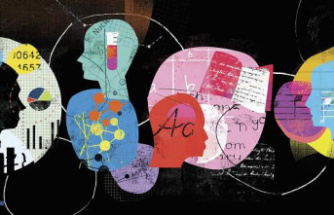According to the United Nations Children's Fund, its "State of the World's Children” study provides the most complete look at the mental health of adolescents and children worldwide. Coronavirus, which caused school closures and impacted the lives of many children and teens, has brought the question of their mental health to the forefront.
UNICEF stated that it could take many years to assess the impact of the pandemic on young people's mental well-being. Psychiatrists saw immediate signs of distress with adolescents and children seeking help for suicidal thoughts and eating disorders, as well as other difficulties. Lockdowns and switching over to remote learning separated them from their routines and friends, and COVID-19 also killed grandparents and parents.
Henrietta Fore, UNICEF's executive Director, stated that children have been locked down nationwide and placed under restrictions on pandemic-related movements. This has left them without their loved ones, friends, or play, which are key elements of childhood.
Fore stated that the impact was significant and that it is only the tip of an iceberg. "Much too many children are burdened by unaddressed mental illness issues, even before the pandemic." These critical needs are not being met by the governments.
According to pediatric psychiatrists, they had already run out of resources prior to the epidemic that brought an increase in caseloads. UNICEF stated that spending on mental health promotion and protection is "extremely low", but the need is urgent. UNICEF cited pre-pandemic numbers from 2019 and estimated that nearly 46,000 children and teens aged 10-19 end their lives each year.
Some governments have reacted to the scale of pandemic-related distress among adolescents and children. France hosted a two-day international summit on mental health. It provided free therapy to children and teens and promised to continue that support until next year for all who have a prescription from a doctor. There was also a surge in demand for counseling hotlines and newly opened to assist people with mental health issues during the pandemics.
UNICEF stated that multiple concerns can affect children's mental health, including anxiety over illness, lockdowns, school closings, and other life events. UNICEF stated that lockdowns can also cause behavior problems and are especially difficult for children with autism and attention-hyperactivity disorders.
Many millions of young people cannot access remote learning. UNICEF stated that one in three schoolchildren could not participate because they didn't have access to the internet or television. The most affected were children from the poorest families. According to estimates, two-fifths of the five eastern and southern African children were still not in school as of July.
Even if they aren't being forced to quit school or work to make ends meet, the pandemic's devastating repercussions on jobs and economies also affect children. UNICEF stated that the crisis caused a "sharp uptick" of children living in poverty. An additional 142 million children were thought to have fallen into poverty in 2013.
UNICEF warned that financial hardship and school closings could increase the likelihood of girls being forced to marry as child brides.
Children and adolescents are less likely to succumb to COVID-19 than people older or more vulnerable, but UNICEF warned that the pandemic had "upended their lives and caused real concern for their mental well-being and mental health."
It stated that the pandemic would hang over the hopes and lifetime earnings of those whose education was disrupted. The risk is that the pandemic's aftershocks will cause a decline in happiness and well-being for children, adolescents, and caregivers over the years.












